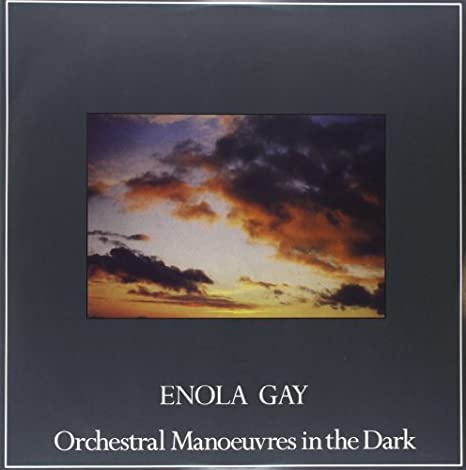It’s 8:15 and That’s the Time It’s Always Been: An Analysis of OMD's 'Enola Gay'

'Enola Gay' is the iconic single from Orchestral Manoeuvres in the Dark’s debut album 'Organisation'. Widely regarded as the band’s signature song, this synth-pop classic stands out not only for its distinctive sound but also for the profound historical context embedded in its lyrics.
The song is named after the B-29 Superfortress aircraft Enola Gay, which was the plane that dropped the first atomic bomb, Little Boy, on Hiroshima, Japan, on August 6, 1945. The plane’s name was chosen by its pilot, Colonel Paul Tibbets, after his mother, Enola Gay Tibbets. The bomb, Little Boy, was a uranium-235 weapon, and it was the first atomic bomb ever used in warfare, marking a pivotal moment in World War II and in world history.
The lyrics of 'Enola Gay' reflect on the moral and ethical questions surrounding the use of the atomic bomb. The song asks whether the bombings of Hiroshima and Nagasaki were truly necessary. With lines like "It shouldn't ever have to end this way," OMD touches on the human cost and the devastating consequences of nuclear warfare. The lyrics evoke a sense of conflict, questioning the justification for the mass destruction caused by the bomb.
One of the most poignant lines in the song, "Is mother proud of Little Boy today?", serves as a powerful allusion to both the bomb’s nickname, Little Boy, and Paul Tibbets’ decision to name the plane after his mother, Enola Gay. This dual reference emphasizes the personal connection between the pilot and the destructive power he unleashed.
The repeated phrase, "It's 8:15, and that’s the time that it’s always been," refers to the exact moment of the bomb’s detonation over Hiroshima at 8:15 AM Japan Standard Time (JST). The explosion was so powerful that it left many timepieces frozen at that moment, making it "the time that it’s always been." This haunting line encapsulates the idea that the events of that day remain permanently etched in history, an indelible mark on the collective memory.
What’s particularly remarkable about 'Enola Gay' is how a band from Liverpool, far removed from the horrors of Hiroshima, managed to create a pop song that was both a catchy anthem and a thought-provoking commentary on a tragic historical event. Released in 1980, the song still resonates today, both musically and thematically, with its striking blend of futuristic synth sounds and poignant reflection on one of the most significant moments of the 20th century.
OMD’s ability to tackle such a sensitive subject matter with intelligence and creativity is a testament to the band’s unique artistic vision. The song’s modern, electronic sound despite being recorded and released in 1980 still feels fresh and relevant in contemporary music, proving the timeless quality of both the music and the message it conveys.
Thank you for reading